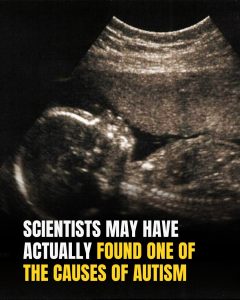A recent study published in The Journal of Immunology has brought new attention to the relationship between maternal gut health and the neurological development of offspring. Conducted by researchers at the University of Virginia, the findings provide evidence that the bacterial composition of a mother’s digestive system may play a critical role in the development of the child’s immune and nervous systems. More specifically, the research zeroes in on an inflammatory molecule known as IL-17a, suggesting that the presence and activity of this molecule may be a crucial link between maternal gut bacteria and autism spectrum disorders (ASD).

The research involved laboratory studies using mice as test subjects. By manipulating the gut microbiota of pregnant mice, the scientists observed notable differences in the behavior of their offspring. In one group, the maternal gut microbiota activated a strong immune response that included a surge in IL-17a. As the baby mice grew, they began to show behaviors that closely resembled symptoms observed in autism spectrum disorders—such as reduced social interactions, repetitive behaviors, and atypical patterns of communication. In contrast, offspring of mothers whose IL-17a levels were suppressed or inactive developed normally and exhibited behavior considered typical for healthy mice.
To further verify their findings, the researchers conducted fecal microbiota transplants (FMT). This method involved transferring gut bacteria from one group of mice to another, essentially recreating the original gut environment of the donor mouse in the recipient. After performing the transplant, the results remained consistent: the mice that received microbiota known to trigger IL-17a inflammation showed the same autism-like behaviors in their offspring. This aspect of the study strongly indicated that the behavioral outcomes were not genetically inherited, but rather driven by the microbial environment present during pregnancy.
While the study was conducted entirely on animal models and should not be interpreted as conclusive evidence for humans, it opens up a promising new field of investigation. It points toward the possibility that conditions in the maternal gut—such as imbalances in microbial diversity, or dysbiosis—may set off a chain of immune responses that ultimately influence fetal brain development. The researchers stress that these findings are preliminary but important, and they call for further research to determine if similar mechanisms are at work in humans.
The implications of this research are far-reaching. If maternal gut bacteria indeed contribute to the likelihood of autism in children, this could lead to new preventative approaches or early interventions aimed at improving maternal gut health during pregnancy. For instance, future studies might investigate whether probiotics, prebiotics, or dietary adjustments could help balance the gut microbiome and reduce inflammation-related risks to fetal development.
Moreover, understanding the role of IL-17a could also offer new therapeutic targets. This molecule is already known to be involved in other autoimmune and inflammatory disorders such as multiple sclerosis and psoriasis. If it is confirmed to influence neurological development, medical researchers may be able to adapt existing strategies for modulating IL-17a in ways that support healthy brain development in utero.
Experts in immunology and neuroscience alike are watching this research with keen interest. One of the key strengths of the study lies in its ability to isolate a specific molecular pathway—IL-17a—as a potential culprit in the development of autism-like behavior. In doing so, the research helps move beyond broad generalizations about genetics and environment and instead pinpoints a concrete biological mechanism that may bridge both.
It is important to note, however, that autism spectrum disorder is a complex and multifaceted condition, believed to arise from a combination of genetic, environmental, and developmental factors. No single cause has been identified, and it is unlikely that one will be. Instead, research continues to suggest that multiple pathways and risk factors can contribute to the condition, possibly interacting in different ways in each individual. The University of Virginia study should be seen within this broader context, offering one more piece of a much larger puzzle.
The researchers behind the study emphasize that their goal is not to assign blame to mothers or suggest a one-size-fits-all solution. Rather, they hope that by deepening our understanding of how the maternal environment can shape early brain development, science can move closer to creating actionable solutions. The next step for the team is to explore which specific bacterial strains or microbial imbalances are most strongly associated with IL-17a activity, and whether these patterns are mirrored in humans.
If confirmed in human studies, this research could reshape prenatal care practices. It might eventually lead to screening tools that assess the state of the maternal microbiome or to the development of nutritional and microbial therapies designed to reduce inflammation during pregnancy. Such advancements could have a significant impact, particularly given that autism now affects an estimated 1 in 36 children in the United States, according to the Centers for Disease Control and Prevention (CDC).
In conclusion, while more work remains to be done before these findings can be translated into clinical recommendations, the study represents a groundbreaking step in understanding how maternal biology, particularly gut health, might affect neurodevelopment. As science continues to uncover the invisible yet powerful influence of microbiota on human health, studies like this one provide a valuable foundation for future breakthroughs. The research not only reinforces the importance of maternal health during pregnancy but also opens up new lines of inquiry that could lead to earlier diagnosis, more effective interventions, and better outcomes for families affected by autism spectrum disorder.





